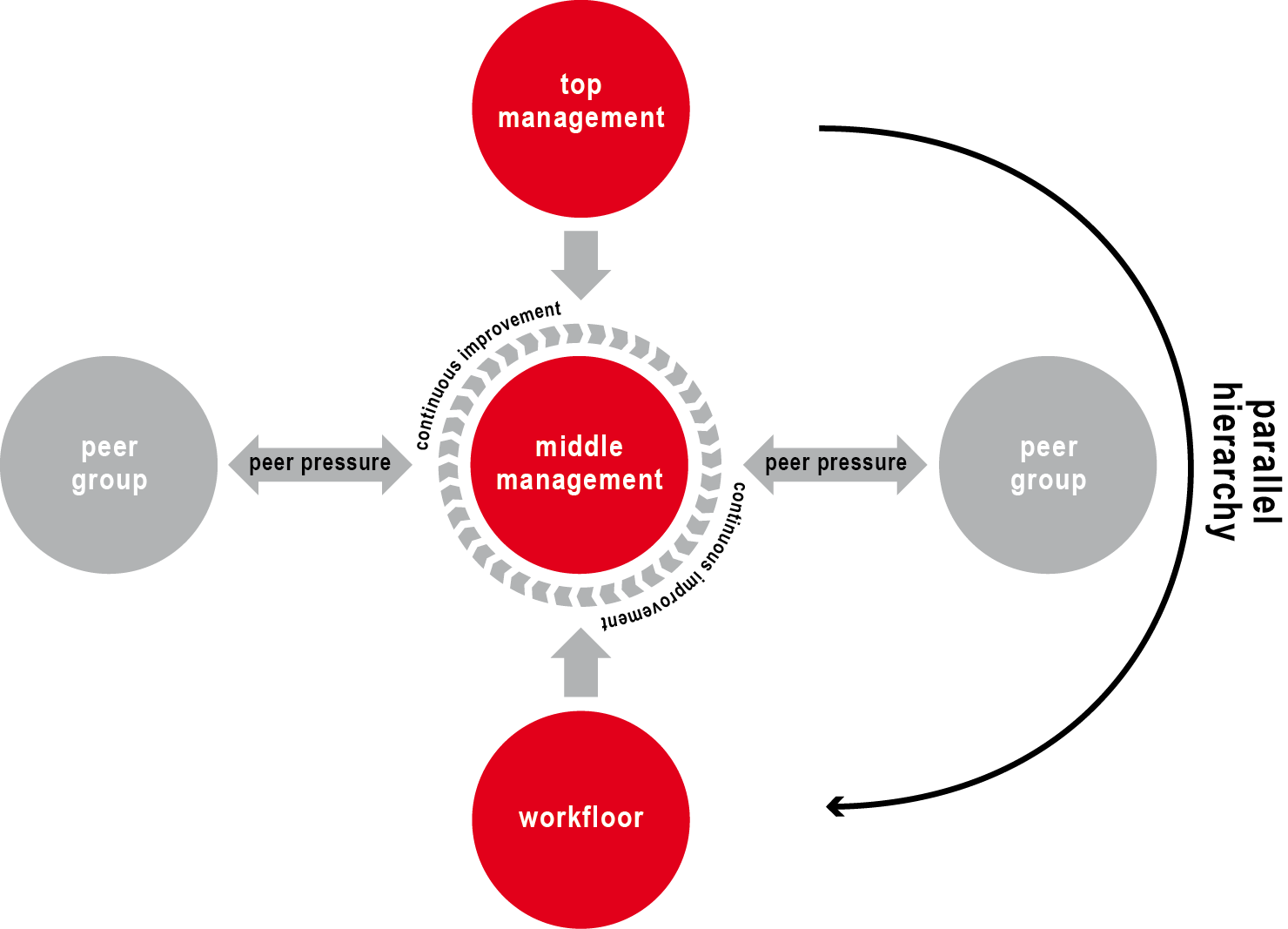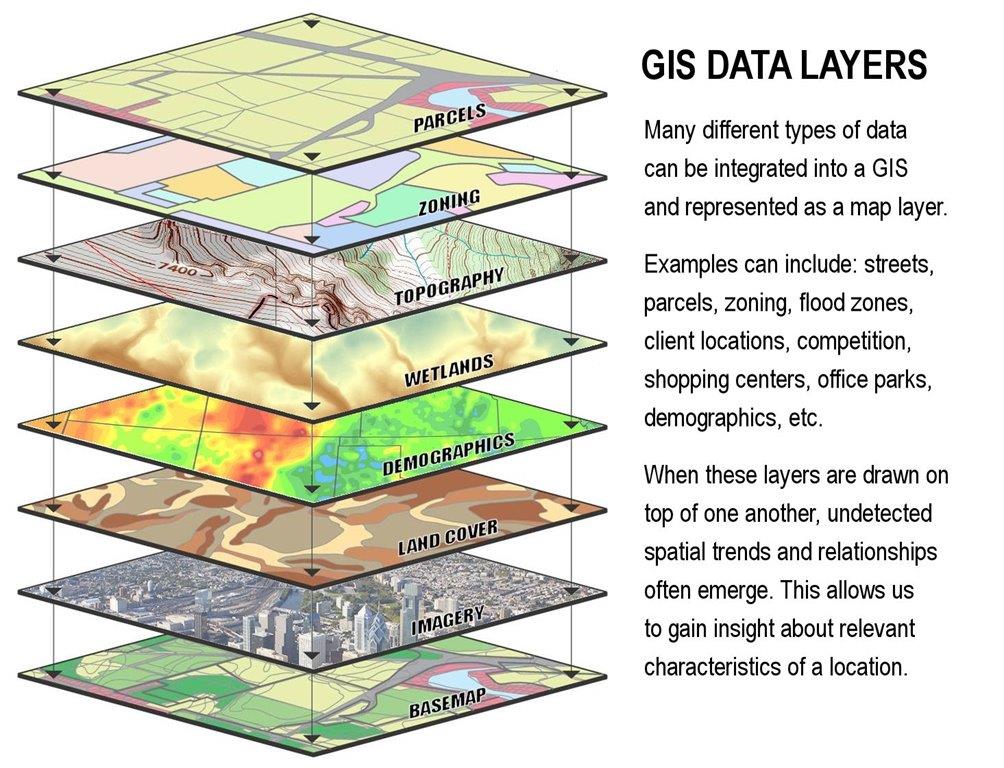Understanding The Value Of Middle Management In Today's Workplace

Table of Contents
The Bridge Between Leadership and Employees
Middle managers serve as a crucial bridge, connecting the strategic vision of senior leadership with the daily operations of frontline employees. Their effectiveness directly impacts the organization's ability to translate high-level goals into tangible results and maintain a cohesive, communicative work environment.
Translating Strategy into Action
Middle managers are responsible for taking the big-picture strategic goals set by upper management and breaking them down into achievable, actionable plans for their teams. This process involves clear goal setting and effective performance management.
- Example 1: A company-wide sales target of 15% growth is translated by the sales manager into individual quotas and sales strategies for each team member.
- Example 2: A company-wide sustainability initiative is translated by the operations manager into specific departmental projects, such as waste reduction programs and energy efficiency upgrades. This requires careful planning and resource allocation.
- Example 3: A marketing goal to increase brand awareness is broken down by the marketing manager into specific campaigns and social media strategies, with clear KPIs (Key Performance Indicators) and deadlines.
This strategic implementation relies heavily on effective communication and collaborative tools to ensure everyone understands their role and contributions towards shared objectives. Without capable middle management, strategic goals often remain unrealized, leading to decreased productivity and missed opportunities.
Fostering Communication and Collaboration
Effective middle managers act as vital communication conduits, facilitating open dialogue and information flow between upper management and frontline employees. They ensure that everyone is informed, engaged, and working towards shared goals.
- Regular team meetings: Provide platforms for updates, feedback, and problem-solving.
- Transparent reporting: Keeps employees informed about company performance and progress towards goals.
- Open-door policies: Encourage open communication and feedback from team members.
- Utilizing collaboration tools: Employing project management software and communication platforms to ensure effective teamwork.
This two-way communication fosters a culture of collaboration, improves employee morale, and reduces misunderstandings. It ensures that employee feedback reaches upper management, leading to more informed decision-making.
Driving Employee Engagement and Development
Effective middle management plays a critical role in cultivating a high-performing workforce by focusing on employee engagement and development. This involves investing in their team's growth and creating a positive and productive work environment.
Mentorship and Training
Middle managers are often the primary mentors and trainers for their team members. Their ability to provide constructive feedback, identify training needs, and offer professional development opportunities directly impacts employee growth and retention.
- Constructive feedback: Regular performance reviews and feedback sessions that focus on both strengths and areas for improvement.
- Professional development opportunities: Providing access to training programs, workshops, and conferences to enhance skills and knowledge.
- Mentoring programs: Pairing experienced employees with newer team members for guidance and support.
- Performance improvement plans: Developing tailored plans to address performance gaps and support employee growth.
Investing in employee development not only benefits individual team members but also contributes to a more skilled and productive workforce overall.
Boosting Team Morale and Productivity
Middle managers are responsible for fostering a positive and motivating work environment. Their leadership style and ability to recognize achievements, build team cohesion, and address challenges directly impact team morale and productivity.
- Recognizing achievements: Publicly acknowledging and rewarding individual and team accomplishments.
- Fostering a collaborative culture: Encouraging teamwork, communication, and mutual support.
- Providing support and resources: Ensuring that team members have the tools, resources, and support they need to succeed.
- Addressing conflict effectively: Resolving disagreements and conflicts promptly and fairly.
By creating a supportive and inclusive work environment, middle managers significantly contribute to increased employee motivation, engagement, and ultimately, enhanced productivity.
Navigating Change and Adaptability
In today's rapidly changing business landscape, organizations must be agile and adaptable. Middle managers play a pivotal role in facilitating this adaptability, helping teams navigate uncertainty and embrace innovation.
Adapting to Evolving Business Needs
Middle managers are often the first to encounter and respond to changes in the business environment. Their ability to adapt strategies, implement new technologies, and adjust to shifting market demands is critical for organizational success.
- Implementing new technologies: Training team members on new software, systems, and tools.
- Adjusting to market shifts: Responding to changes in customer demand, competition, and market trends.
- Responding to unforeseen challenges: Effectively managing crises, resolving unexpected problems, and adapting plans as needed.
This proactive approach to change management ensures that the organization can remain competitive and resilient in the face of evolving circumstances.
Fostering Innovation and Creativity
Middle managers can cultivate an environment that encourages innovation and creativity within their teams. This involves empowering their employees to think outside the box, take risks, and explore new ideas.
- Brainstorming sessions: Organizing regular sessions to generate new ideas and solutions.
- Encouraging risk-taking: Creating a culture where experimentation and calculated risks are welcomed.
- Providing resources for experimentation: Allocating budget and time for employees to develop and test new ideas.
- Team empowerment: Delegating authority and responsibility to foster ownership and initiative.
By fostering a culture of innovation, middle managers help their organizations stay ahead of the curve and adapt to the ever-changing demands of the marketplace.
Conclusion
Effective middle management is not a luxury but a necessity in today's dynamic business world. Their ability to bridge communication gaps, drive employee engagement, and navigate change is paramount to organizational success. Understanding the true value of middle management is crucial for success. Invest in your middle management team by providing them with the training, resources, and support they need to excel. Reimagine the role of middle management, focusing on their strategic importance and potential for driving positive change within your organization. For further resources on improving middle management effectiveness, explore [link to relevant resources or further reading].

Featured Posts
-
 Minnesota Faces Attorney General Pressure Compliance With Trumps Transgender Sports Ban
Apr 29, 2025
Minnesota Faces Attorney General Pressure Compliance With Trumps Transgender Sports Ban
Apr 29, 2025 -
 Exclusive Universities Band Together To Resist Trumps Policies
Apr 29, 2025
Exclusive Universities Band Together To Resist Trumps Policies
Apr 29, 2025 -
 Donald Trump Slams Mlb Over Pete Rose Ban Plans Posthumous Pardon
Apr 29, 2025
Donald Trump Slams Mlb Over Pete Rose Ban Plans Posthumous Pardon
Apr 29, 2025 -
 The Countrys New Business Hotspots A Geographic Analysis
Apr 29, 2025
The Countrys New Business Hotspots A Geographic Analysis
Apr 29, 2025 -
 You Tube The Unexpected Platform For Older Viewers Favorite Programs
Apr 29, 2025
You Tube The Unexpected Platform For Older Viewers Favorite Programs
Apr 29, 2025
